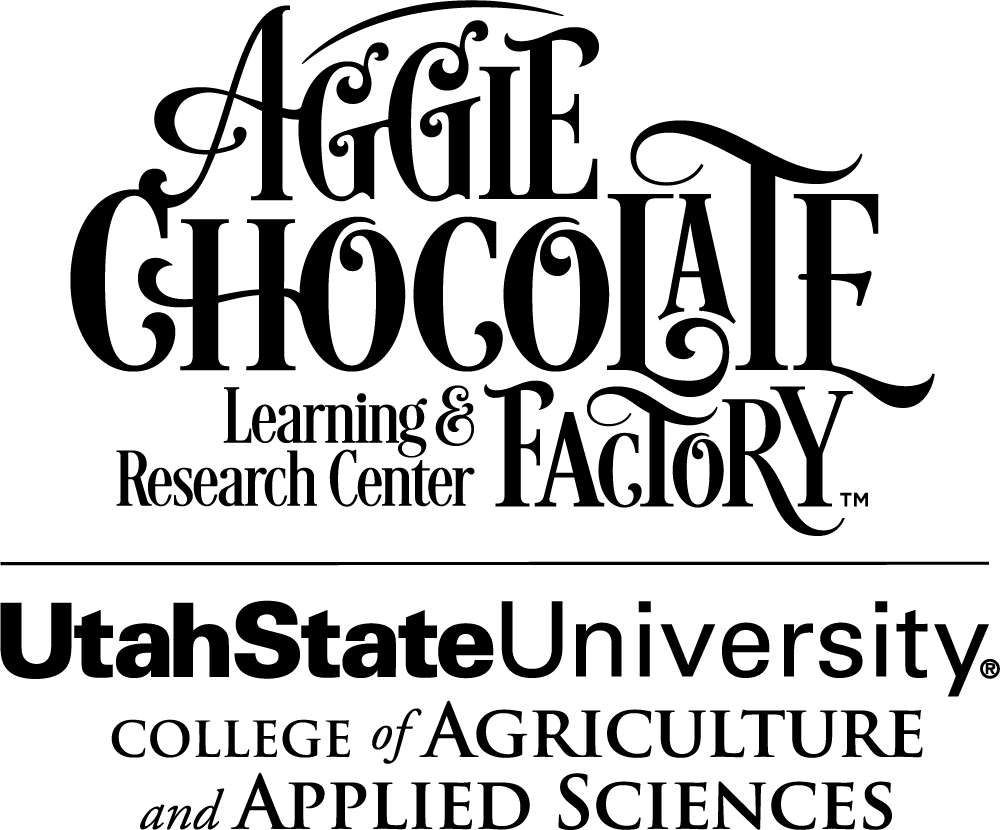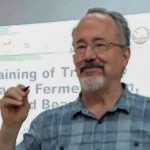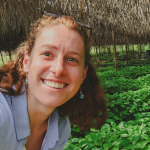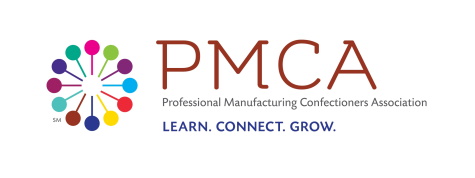What Makes Chocolate So Good?
The Art & Science of Chocolate Processing
February 27-29, 2024 | Logan, UT
Hosted by

Registration for this course is full. Please contact us to be placed on the wait list.
Agenda Overview
This two-and-a-half day course will provide a thorough understanding of chocolate processing from bean to bar. We’ll discuss what happens on the farm and right after, the key stages of processing and the ins and outs of chocolate formulation, refining, conching and stabilizing. Uses and applications will be discussed with a focus on tempering and an overview of others such as moulding, panning and enrobing. Challenges and opportunities from each of these processes will be discussed. Participants will have the opportunity to discuss specific challenges encountered in their production plants with troubleshooting solutions provided.
This course will be organized in short lectures and be heavily focused on hands-on activities. It’s applicable for beginners up to seasoned professionals who want to learn more about all the elements that impact the final product we love – chocolate.
Plus, relax and connect with instructors and other attendees during our PMCA-hosted welcome event the first night of the course!
Day 1 – Farm & Beginning Stages
- Sustainability
- Beans
- Fermentation & Drying
- Product Development
- Up Close and Personal with Cacao Pods
- Roasting
Day 2 – Processing
- Melanging, Refining, Conching & Finishing
- Cocoa Press Demo
- Tempering Methods
Day 3 – Applications & Troubleshooting
Applications Overview:
- Moulding
- Panning
- Enrobing
PMCA will follow any CDC and local health department guidelines that may be in place during the course. The safety of attendees, instructors and staff is our top priority.
Instructors

Dr. Silvana Martini – Lead Instructor, Utah State University
Dr. Silvana Martini is a food science professor at Utah State University and the director of the Aggie Chocolate Factory. Dr. Martini’s research focuses on evaluating the effect of processing conditions on the physical and sensorial properties of lipids. She teaches an undergraduate course on chocolate (Chocolate Science, History and Society) and has developed interest in studying the flow behavior of chocolate in addition to exploring the factors that affect fat bloom in chocolate. Over the years Dr. Martini published more than 130 papers in peer-reviewed journals, participated in more than 190 conferences, was an invited speaker in more than 30 international conferences and published 11 book chapters. Dr. Martini has trained several undergraduate researchers, PhD and MS students and received various international scholars in her lab. She received several local and international awards such as the Young Scientist Award from the Agricultural and Food Chemistry Division of the American Chemical Society and the Robins Award for Faculty Researcher of the Year for Utah State University, the Timothy L. Mounts Award and Fellow Award from the American Oil Chemists’ Society. Dr. Martini serves as editor-in-chief for the Journal of the American Oil Chemists’ Society and is the president of the American Oil Chemists’ Society.

Steve DeVries, Independent Chocolate & Cacao Consultant
I bought my first cacao in 1998 while in Costa Rica for a Spanish immersion. Returning home to Colorado I could find no books, either in libraries or bookstores, on how to make chocolate from the beans. All of them started, “buy chocolate and melt…”. I used my oven and a grain grinder to make my first chocolate, and though admittedly crude, it had a complexity of flavor that I had never tasted in chocolate before. I was hooked and have spent the last 25 years working to understand those flavors.
In 2000 and 2002 I visited Chuao to see from where all the legends came. It was clear that along with their genetics, their method of intermittent drying is what distinguished their cacao. By the time I opened DeVries Chocolate in 2005, I was drying my own cacao using that method in both Costa Rica and the Dominican Republic.
Over the years I have made some improvements and last February gave a 10-day training on the technique at the University of Southern Mindanao in the Philippines for 40 food scientists from state universities all around the country. Those procedures are the subject of comparative research there. That research is ongoing, but early results have shown the conventional methods produced beans with a pH of 5.4, while with my approach the beans were 6.9 pH. Alkylpyrazines were also more than double from the conventional method.

Gabe Eaton, Russell Stover
Gabe Eaton is a senior food technologist working in product development for Russell Stover Chocolates. Gabe earned his bachelor’s degree in food science from Brigham Young University and his master’s degree in food science from Kansas State University. He has more than 10 years of experience working in product development and has a passion for being creative. While he started his career working in the development of frozen snacks and appetizers, chocolate has become his new focus. He loves all things candy and enjoys being able to create new and exciting flavor combinations. Over the past four years he has had the opportunity to work with multiple candy types and chocolates. While at Russell Stover he has worked to help develop and commercialize multiple products and most recently achieved a Guinness World Record along with his team for the World’s Largest Box of Chocolates.

Wayne Houde, Russell Stover
Wayne Houde has more than 45 years of experience in candy making and manufacturing. He currently works as the director of product creation in innovation and development for Russell Stover Chocolates. He began his career working at the historic Hebert Candy Mansion in Shrewsbury, MA. There, he learned many of the ins-and outs of chocolate and candy production and gained a wealth of knowledge. Additionally, he has worked for Rocky Mountain Chocolate where he continued to deepen his knowledge of chocolate manufacturing. Wayne has personally been responsible for many new and innovative products that have come out of Russell Stover over the last 24 years, and most recently achieved a Guinness World Record along with his team at Russell Stover for the World’s Largest Box of Chocolates. Wayne continues to mentor and provide knowledge and support to those in his product development group and the candy industry.

Christina Jenkins, Barry Callebaut
Christina Jenkins is customer cocoa R&D manager for the West Coast at Barry Callebaut, the world’s largest chocolate manufacturer. She holds degrees in culinary arts and food science and has worked in research and development for chocolate and cocoa at Barry Callebaut for the past 9 years. She lives in Napa, California and enjoys cooking, baking, yoga and spending time with family.

Rebecca Kuehn, Guittard Chocolate Company
Rebecca Kuehn is the R&D director at Guittard Chocolate Company where she is responsible for realizing innovations and managing technical projects in chocolate products and processing. Coming up on 15 years in the chocolate industry, she has led and contributed to new product launches, product and process improvements and production line startups, both domestically and internationally.
Introduced to the industry as part of the PMCA Student Outreach Program and while researching chocolate at the University of Wisconsin-Madison, Rebecca continued on, earning her MS in food science and technology from University of California, Davis, where her studies contributed to fundamentals of chocolate bloom and oil migration through support from PMCA’s research grant. Now PMCA’s Western Region Committee Chair and a member of the Board of Directors, Rebecca is engaged in building the industry’s future, bringing people and organizations together.

Charles Quinto, Blommer Chocolate Company
Charles Quinto is a R&D corporate manager of product development with Blommer Chocolate and has been with the company for five years. He is a passionate food scientist with 10 years of product development and commercialization experience across multiple brands focused on consumer packaged goods, food service and ingredient supply. Charles earned his bachelor’s degree in molecular biology at the University of California, San Diego and his master’s degree in food science at Chapman University. Combining his technical background with his desire to educate the community, Charles taught food chemistry and food safety and current issues at Cal Poly Pomona in addition to an introduction to food science at Chapman University. Outside of work Charles enjoys experimenting in the kitchen, hiking and going on walks with his Siberian Husky!

Camille Woods, Blommer Chocolate Company
Camille Woods serves as the sustainability manager at Blommer Chocolate Company and has been a valuable member of the team for five years. With a bachelor’s degree in agricultural economics and a master’s degree in supply chain and sustainability management, Camille brings expertise in sustainable sourcing and a strong commitment to environmental responsibility to her role.
As sustainability manager, Camille is responsible for developing and implementing Blommer’s sustainability strategy, encompassing both ingredient sourcing and manufacturing. She actively collaborates on sustainable cocoa and chocolate solutions for Blommer’s customers.
Camille is dedicated to assisting businesses in integrating social and environmental considerations into their business models, ensuring a positive impact on the world and future-proofing their operations.
Accommodations:
PMCA has a block of rooms reserved for attendees to book at a local hotel.
Hampton Inn & Suites
207 N Main Street
Logan, Utah 84321
435-753-3000
Rate: $125/night +12.57% tax
Includes complimentary breakfast and free high-speed and wireless internet in lobby and guest rooms
Cutoff Date is 2/12/2024. Individual cancelation is 48 hours before the arrival date.
Fees:
$1,450 per person for employees of PMCA member companies
$1,450 per person + cost of membership for non-member companies
Please contact PMCA if unsure of your membership status. If you are not currently a member, learn more about PMCA membership or fill out an application.
Membership Payment Categories:
$295.00 — Consultants less then 5 employees, entrepreneurs and emerging companies less than 10 years in business
$650.00 — 100 employees maximum working directly in the confectionery industry
$900.00 — 1,000 employees maximum working directly in the confectionery industry
$2,900.00 — More than 1,000 employees working directly in the confectionery industry
Fee includes all course materials, lunches, a welcome event and transportation between the hotel and the facility. Light snack items and beverages will also be available in the classroom, but attendees should arrange their own breakfast and dinner accommodations if needed.
Conditions:
PMCA reserves the right to cancel the course or make changes in the course or instructors. If PMCA cancels the course for any reason, full refunds will be made.
Extended Cancelation Policy: Cancelations by registered attendees will be accepted two weeks before the course starts subject to a $50.00 cancellation fee. After this time, no refunds will be made. A substitute may be named at any time.
Personal Liability:
PMCA, PMCA staff, course instructors and the host facility are not responsible for any personal injury or other condition sustained or arising during the course.

